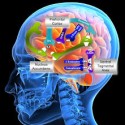Recognizing and Treating Alcohol Problems
While some 18 million Americans suffer from alcohol abuse or dependence, only one in eight receives treatment. Poor diagnosis may play a role in people being undertreated, but there are a growing number of tools to help people assess and understand whether they have alcohol problems.
One of the latest tools is a new government Web site called “Rethinking Drinking,” which, through a 20-question assessment, is designed to determine whether your drinking patterns are safe, risky or harmful.
Launched and supported by the U.S. Department of Health & Human Services (HHS) division, the National Institute of Alcohol Abuse and Alcoholism (NIAAA) web site features a self-assessment test that is completely confidential and anonymous.
Medications for Alcohol Dependence
The Food & Drug Administration has approved medications for the treatment of alcohol dependence which offer treatment options in addition to traditional 12-step and counseling programs. Rethinking Drinking provides key facts about medications for alcohol dependence:
- Newer medications can make it easier to quit drinking.
- Newer medications don’t make you sick if you do drink.
- None of these medications is addictive.
- Medications can be combined with support groups or alcohol counseling.
Traditionally, approaches to overcome alcoholism have not included medications. Government statistics show that 75 percent of people receiving traditional approaches for alcohol dependence relapse to heavy drinking within the first year of beginning treatment.
New Guidelines Include Medications
Last year, the HHS issued best-practice guidelines for the treatment of alcohol dependence. These guidelines include for the first time the recommendation to consider the two most recent FDA-approved medications for alcohol dependence, naltrexone for extended-release injectable suspension and acamprosate calcium.
One of the newly added medications in the HHS guidelines is an extended-release injection taken once a month. Pill medications have been successful for some patients. However, in cases where a patient may be challenged to reliably take a daily pill, an extended-release injection that is given once a month can be a helpful treatment option.
To find a physician in your area, go to www.alcoholanswers.org/local. For online self assessment, go to www.rethinkingdrinking.niaaa.nih.gov.
source: NewsUSA
